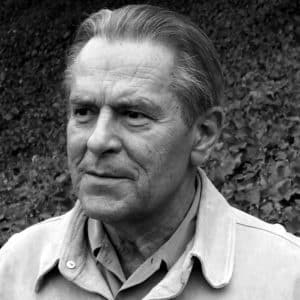Stanislav Coarse – The Healing Potential of Unusual States of Consciousness (Non-Ordinary States of Consciousness)
Stanislav Grof is a psychiatrist with nearly 50 years of experience in researching unusual states of consciousness. He was the principal investigator in a psychedelic research program at the Psychiatric Research Institute in Prague, Czechoslovakia, head of psychiatric research at the Maryland Psychiatric Research Center, assistant professor of psychiatry at Johns Hopkins University in Baltimore, Maryland, and residency at the Esalen Institute in Big Sur, California.
Holotropic breathwork
At Esalen, together with his wife Christina Grof, he developed Holotropic Breathwork, a technique that includes deep, connected breathing, music, art and trained facilitation with the aim of wholeness, healing and wisdom. Grof is currently a professor of psychology. at the California Institute of Integral Studies and Pacifica Graduate Institute in Santa Barbara, California, teaches professional training programs in holotropic breathwork and transpersonal psychology, and gives lectures and seminars around the world. He is one of the founders and chief theorists of transpersonal psychology and the founder and president of the International Transpersonal Association. Among his publications are more than 100 articles in professional journals and the books Realms of the Human Unconscious; The Human Encounter With Death (with Joan Halifax); LSD psychotherapy; The adventure of self-discovery; Beyond the brain; Books of the dead; The holotropic mind; The cosmic game; The transpersonal vision; The Consciousness Revolution (with Ervin Laszlo and Peter Russell); Psychology of the future; Beyond death; and The Stormy Search for the Self (the last two with Christina Grof). He also edited the books Ancient Wisdom and Modern Science & Human Survival and Consciousness Evolution.
Stanislav Grof (born July 1, 1931 in Prague) is a Czech consciousness researcher, psychotherapist and psychiatrist.
He was, together with Abraham Maslow and Anthony Sutich, co-founding father of transpersonal psychology, which – as an extension of the humanist – also offers space for experiences of a religious and spiritual nature. He is regarded as one of the largest authorities in the field of LSD psychotherapy, and has developed over the last five decades a very extensive methodological and theoretical frame of reference, in which the most diverse and extreme experiences that are usually denied or pathologized by the dominant – mainly symptom-oriented – psychiatry has also found a place.
In particular, in his 1985 main work Beyond the Brain – Birth, Death and Transcendence in Psychotherapy, he sketched the contours of a completely new psychology that also does justice to the changed (and still changing) insights regarding the structure of reality and the nature of human consciousness.
Stanislav Grof is best known for his early research (1956-1967) on LSD and its effects on the human psyche, the field of psychedelic psychotherapy.
Over the years, Grof developed a conceptual framework for pre- and perinatal psychology, and transpersonal psychology in which LSD experiences and other powerful emotional experiences at the perinatal, biographical and transpersonal levels are related to four so-called perinatal basic matrices (BPM I, II, III and IV) with “COEX” systems (“systems of condensed experience”) as general organizing principles that – whether traumatic or not – connecting experiences, memories and fantasies with a similar emotional or energetic charge.
Over time, Grof also managed to develop a very extensive and complete cartography of the deeper human psyche on the basis of decades of intensive clinical research, which is still developing under the influence of the work of other transpersonal pioneers such as Richard Tarnas, Christopher Bache and Ken Wilber.
After LSD was placed on the list of prohibited substances in October 1966, he developed a drug-free, breathing-based technique with which these states of consciousness can also be explored in a safe and sheltered environment, the so-called Holotropic Breathwork.
On October 5, 2007, he was awarded the VISION 97 Prize of the Dagmar and Václav Havel Foundation in Prague for his life’s work.
Four of Stanislav Grof’s books appeared in Dutch: ‘Geboorte, dood en transcendentie’ (translation of ‘Beyond the Brain’, published in 1987 by Lemniscaat), ‘Op de drempel van het leven’ (translation of ‘Auf der Schwelle zum Leben’, published in 1990 by Kosmos), ‘Reizen door de geest’ (translation of ‘The Holotropic Mind’, published in 1994 by Servire/Kosmos) and ‘De nieuwe psychologie – inzichten uit hedendaagse bewustzijnsonderzoek’ (translation of ‘Psychology of the Future’, published in 2010 by Caduceus Mercurius).

